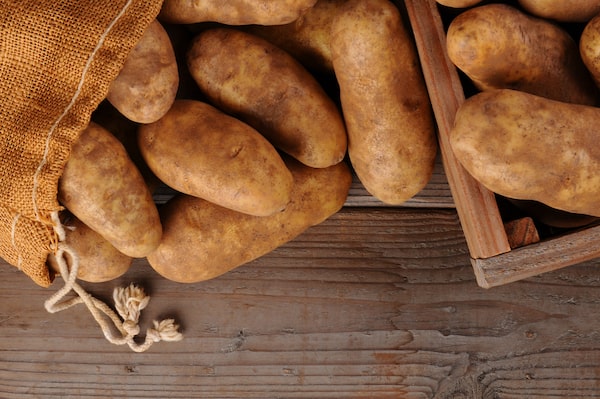
One medium baked russet potato, with skin, supplies twice as much potassium as a banana.iStockphoto
We’re bombarded with diet advice. The internet, celebrities, friends and family are constantly telling us which foods to eat and which to avoid.
Eggs raise your cholesterol, bananas spike your blood sugar, pasta makes you fat, frozen vegetables have fewer nutrients and so on.
The truth is, many foods often dismissed as unhealthy deliver serious nutritional benefits. By making them off-limits, you may be unknowingly undermining your diet.
The following six often-maligned foods should be part of your regular diet. Here’s why.
White potatoes
Potatoes get a bad rap because they’re deemed as a starchy food with a low nutritional value. Not so.
One medium baked russet potato, with skin, supplies twice as much potassium as a banana (952 mg, one-fifth of a day’s worth), along with fibre (4 g), protein (4.5 g), vitamin C, B vitamins, calcium and magnesium. All that for only 164 calories.
Russet potatoes have a high glycemic index (GI) value, while red and new potatoes have moderate GI scores. When cooked potatoes are cooled, though, the glycemic index drops.
Another reason to eat cooked potatoes cold (i.e., potato salad): resistant starch, carbohydrates that nourish your good gut bacteria.
Bake, roast or steam potatoes to retain more nutrients during cooking.
Bananas
If you think you need to stay away from bananas because they’ve got way more sugar than all other fruits, think again. When it comes to natural sugars and calories, a medium-sized banana (105 calories, 27 g carbohydrate) is on par with a medium-sized pear or apple.
And contrary to popular belief, bananas score low on the glycemic index scale, meaning they cause your blood sugar to rise gradually, not quickly, after eating one.
Besides their outstanding potassium content (422 mg for a medium banana), a mineral that’s important for healthy blood pressure, bananas also provide a decent amount of fibre, folate, vitamin B6 and magnesium.
Cashews
Cashews are often regarded as being less healthy – having more calories, fewer nutrients – than other nuts. That’s not the case.
One ounce of cashews (18 nuts) has 160 calories, the same amount found in an ounce of almonds or pistachios. Other types of nuts actually contain slightly more calories an ounce.
One-half of the fat in cashews (55 per cent) is heart-healthy monounsaturated fat, the type found in olive oil and avocados. Cashews are also an excellent source of magnesium (83 mg), a mineral that helps regulate blood sugar and blood pressure.
Pasta
Including pasta in your diet doesn’t mean you’ll gain weight. In fact, research has found that eating pasta, as part of a Mediterranean-style diet, is associated with a lower body mass index and waist size.
And surprisingly, white pasta made from semolina flour scores low on the glycemic index scale.
Plus, a meal of pasta with marinara sauce is an exceptional source of lycopene, an antioxidant believed to guard against heart disease and certain cancers.
To get more fibre, minerals and antioxidants from pasta, choose whole grain noodles more often. To keep portion size in check, serve pasta as a side dish with protein and vegetables.
Eggs
If you’ve replaced whole eggs with egg whites for fear of cholesterol, add them back to your menu.
Yes, egg yolks do have a fair amount of cholesterol (190 mg for a large egg). For most people, though, cholesterol in foods has little or no effect on the level of cholesterol in the bloodstream.
Ditching the yolk means you’re also tossing out plenty of nutrients including protein (almost half the protein in an egg is on the yolk), B vitamins, vitamin A, selenium as well as good amount of brain-friendly choline.
Another bonus: The fat in egg yolks enhances the body’s absorption of fat-soluble vitamins (E, D, K) and antioxidants such as beta-carotene, lutein and lycopene.
Shrimp
As is the case for egg yolks, most people don’t need to worry about the cholesterol in shrimp (161 mg for three ounces).
Three ounces of shrimp delivers 20 g of protein, 1 g of fat, vitamin B12, calcium, magnesium, potassium and zinc and is only 84 calories. (By comparison, three ounces of cooked chicken breast has 142 calories.)
Shrimp also contains astaxanthin, an antioxidant thought to reduce inflammation.
Leslie Beck, a Toronto-based private practice dietitian, is Director of Food and Nutrition at Medcan.
 Leslie Beck
Leslie Beck